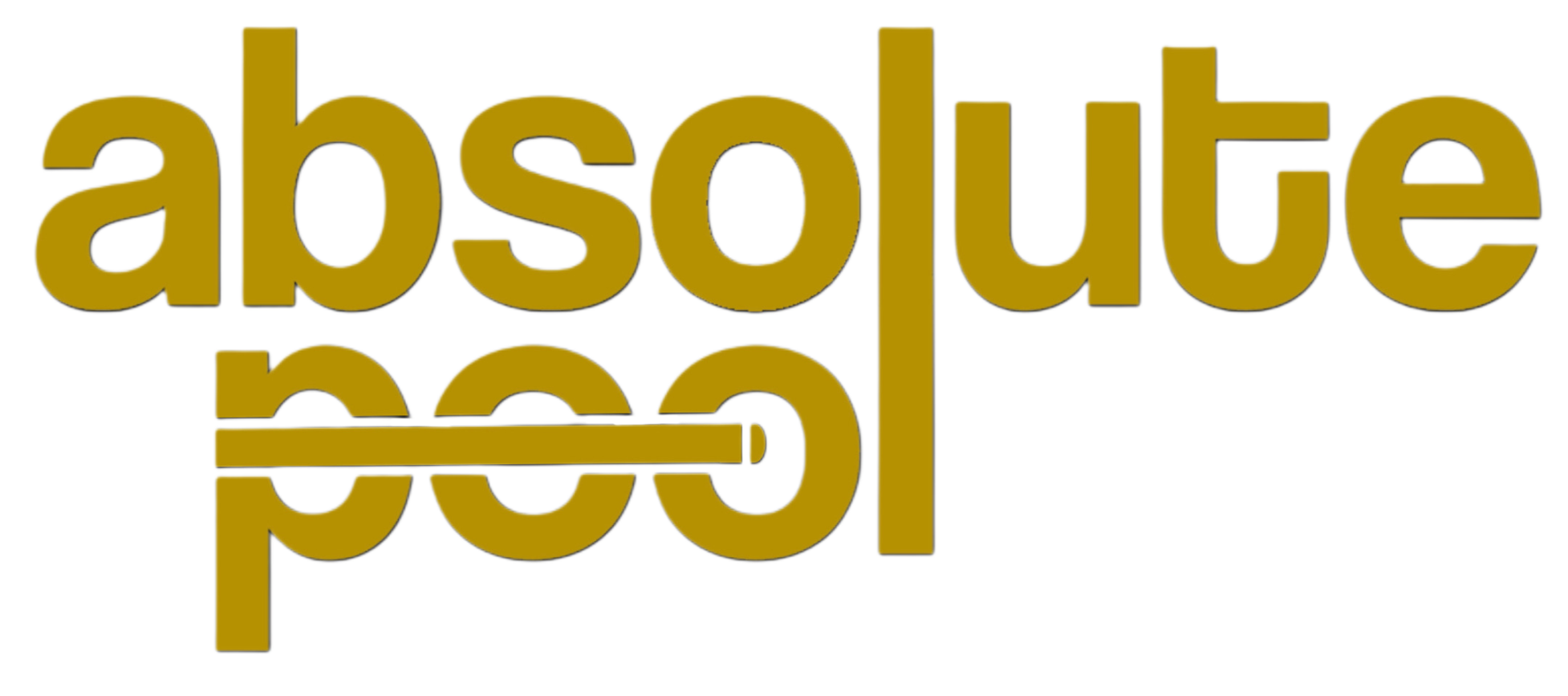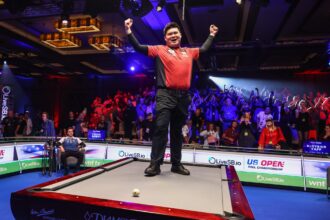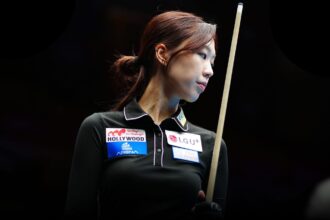On a bone-chilling afternoon in Kielce, Poland as snow surfaced and the 2023 World Pool Championship reached its conclusion, Matchroom’s Emily Frazer and WPA president Ishaun Singh posed alongside the then newly-crowned world champion Francisco Sanchez Ruiz. And, things were already becoming frosty between two of pool’s most influential entities.
Matchroom and the WPA had originally held an almost three decade long partnership which covered the famous Mosconi Cup, the World Pool Masters and the World Cup of Pool, as well as the World Nineball Tour during its embryonic stages. Even the Euro Tour, orchestrated by the European federation and a staple of the WPA calendar, featured on the WNT schedule during its first year.
Nevertheless, that once healthy relationship spiralled downwards and ultimately crumbled as Matchroom sought something in return for their various sanctioning fees. They saw no benefit in their events being sanctioned and wanted their circuit to be recognised as the official tour for nineball pool by the sport’s governing body.
That would have unlocked numerous doors for the World Nineball Tour, including the potential of attracting events such as the China Open and the Qatar Open. However, the WPA stringently declined and president Singh believed that Matchroom wanted to ‘own the game of nineball pool’ – something which they resolutely declared untrue.
It was during the Mosconi Cup in December 2022 in Las Vegas that Barry Hearn revealed that Matchroom would no longer be seeking accreditation but the World Championship would remain sanctioned to honour a prior agreement. “We have a vision and we need everybody to share that vision,” he claimed. “Sometimes people don’t and sometimes people lack a little bit of vision.”
Matchroom chose a different direction and the effects of that decision would become evident in the coming months. They not only launched the World Professional Nineball Pool Corporation – a new governing body for the WNT – but they also clashed their European Open with the European Championships, which have been held annually since 1980, causing the WPA to release a letter detailing their concerns on unsanctioned events.
A response from Frazer which emphasised Matchroom’s ‘utmost respect for the WPA and its national federations’ but their desire to provide ‘the biggest and best opportunities for players’ sparked a consequential reaction from the WPA and its members. Following their general assembly during the Qatar Open, they voted to unleash bans on anyone who competed in non-sanctioned events from March, allowing the players five months to weigh up their decisions.

Frazer then made her feelings clear by stating that the best interests of the players were not the WPA’s priority, days before the Hanoi Open, which was blighted by numerous players opting against travelling to Vietnam due to threats from national federations. The Asian federation swayed players with the strictest measures and their persuasion and pressure meant that Vietnamese number one Duong Quoc Hoang would miss his home event.
Undeterred, Matchroom soon celebrated the 30th anniversary of their illustrious Mosconi Cup, and then began 2024 by further progressing their audacious plans as they announced 128 players as WNT professionals. Signing that dotted line meant that players would declare their commitment to the World Nineball Tour – some choosing to devote themselves more than others further down the line.
In February, a matter of weeks before supposed bans were going to be enforced on players, the WPA back-pedalled on their decision and instead sanctioned all WNT majors that were previously recognised, which did not include the Hanoi Open. People were led to believe that the WPA had reached an agreement with Matchroom but that was later confirmed to not be the case.
Another quarrel between the two would develop as the WPA slammed Matchroom for scheduling the Hanoi Open on top of the World 8-Ball Championship in Venezuela, despite the Vietnam staging being the same dates as the previous year. Predator would ultimately move the World 8-Ball to September, admirably making it possible for all players to compete in both major events without conflict.
Tensions would dampen down in the coming months until the ACBS reportedly sanctioned both Carlo Biado and Johann Chua for attending the WNT-ranked Dubai Open, which blew things out of proportion to the fullest extent. Players released statements in unity against the ACBS threats and vowed to not compete in any WPA-sanctioned events for at least the remainder of the year.
Fedor Gorst, the WPA number one at the time, voiced his concerns as he expressed that the bans “contradict the very spirit of sport” and that players “should have the freedom to choose where they compete without fear of unjust penalties”. He added: “Limiting player participation does not just harm individuals – it threatens the growth and integrity of our sport.”

Joshua Filler and Albin Ouschan were amongst those to support the boycott but would later reverse their statements, having failed to consider the benefits they gain from their national federations. Both competed in the World 8-Ball Championship and the China Open, whilst Gorst travelled to New Zealand and China with his girlfriend Kristina Tkach but stuck to his word and boycotted.
Furthermore, the second staging of the Hanoi Open drew closer and, much like its inaugural edition, it was once again going to be overshadowed by politics. Players dropped out at short notice due to looming fears of being banned, predominantly players from countries who receive financial backing such as Germany, Austria, Poland, Finland and the Netherlands.
Beforehand, the WPA would sanction the WNT-ranked Peri Open, held in Danang, Vietnam, without the event organisers paying their sanctioning fee or even knowing in truly bizarre fashion. No one who competed there would be banned and it was conveniently staged following their new Ho Chi Minh City Open, yet they remained adamant on not acknowledging the Hanoi Open.
In the aftermath of the Hanoi Open, which witnessed Johann Chua land his maiden major title in front of more than 3,000 fans, the WPA announced that 256 players would receive bans, which included more than 50 Vietnamese players who were competing in a tournament in their home country. Players will face a six-month ban and then be required to pay a $500 fine to their national federation should they wish to compete in WPA events again.
In the midst of an already eventful Hanoi Open, Matchroom had also announced that Joshua Filler would be withdrawn from the Reyes Cup despite having qualified. A statement cited ‘concerns over contractual obligations and team integrity around the inaugural event’ as the reasoning behind his removal.
All of these needless shenanigans were sandwiched by the World Nineball Tour’s million-dollar World Pool Championship in Saudi Arabia in June, the last remaining Matchroom event in which they acknowledge the WPA and one which could be detrimentally affected by the bans that the sport’s governing body have imposed.
WPA president Singh travelled to Saudi Arabia but, despite the WPA’s medals being distributed as usual, he played no part in the presentation ceremony. Perhaps that speaks volumes, especially when considering that Singh smiled alongside Frazer when presenting Sanchez Ruiz with the trophy a year earlier.
How this whole predicament that continues to cast gloom over an otherwise promising landscape for professional pool reaches its conclusion is anybody’s guess. Both Matchroom’s World Nineball Tour and the WPA structure are beneficial to the game, but their differences appear a long way from being settled.













3 Comments
regardless of popular ,edia opinion – matchroom is no angel in these issues… and if you know the actual history they are actually the responsible party for starting this entire problem.
Great article, great summary!
Nice summary